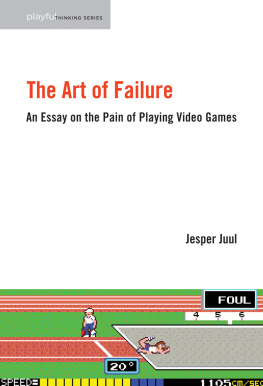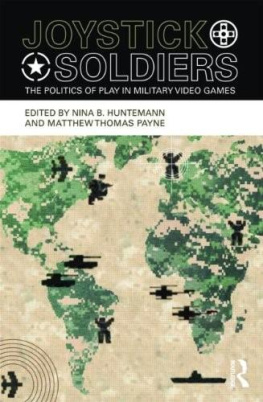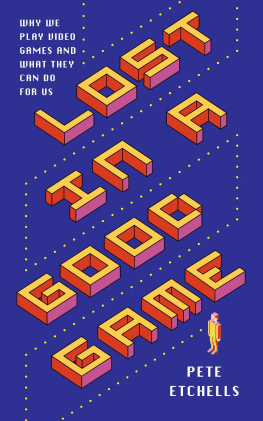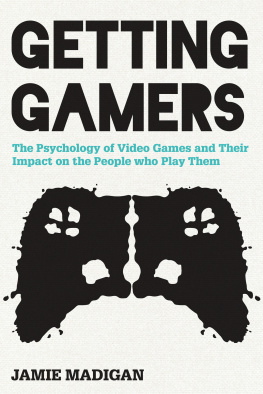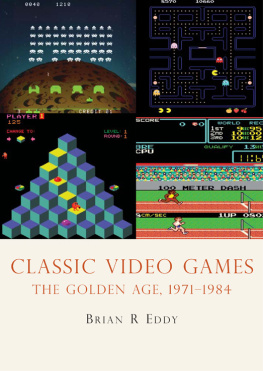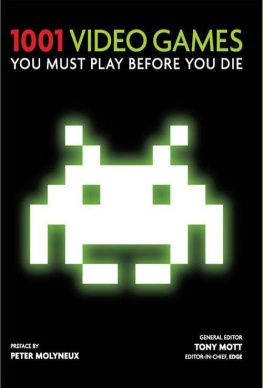Melissa Brinks - Little Book of Video Games: 70 Classics That Everyone Should Know and Play
Here you can read online Melissa Brinks - Little Book of Video Games: 70 Classics That Everyone Should Know and Play full text of the book (entire story) in english for free. Download pdf and epub, get meaning, cover and reviews about this ebook. year: 2020, publisher: Running Press, genre: History. Description of the work, (preface) as well as reviews are available. Best literature library LitArk.com created for fans of good reading and offers a wide selection of genres:
Romance novel
Science fiction
Adventure
Detective
Science
History
Home and family
Prose
Art
Politics
Computer
Non-fiction
Religion
Business
Children
Humor
Choose a favorite category and find really read worthwhile books. Enjoy immersion in the world of imagination, feel the emotions of the characters or learn something new for yourself, make an fascinating discovery.

- Book:Little Book of Video Games: 70 Classics That Everyone Should Know and Play
- Author:
- Publisher:Running Press
- Genre:
- Year:2020
- Rating:4 / 5
- Favourites:Add to favourites
- Your mark:
- 80
- 1
- 2
- 3
- 4
- 5
Little Book of Video Games: 70 Classics That Everyone Should Know and Play: summary, description and annotation
We offer to read an annotation, description, summary or preface (depends on what the author of the book "Little Book of Video Games: 70 Classics That Everyone Should Know and Play" wrote himself). If you haven't found the necessary information about the book — write in the comments, we will try to find it.
Melissa Brinks: author's other books
Who wrote Little Book of Video Games: 70 Classics That Everyone Should Know and Play? Find out the surname, the name of the author of the book and a list of all author's works by series.
Little Book of Video Games: 70 Classics That Everyone Should Know and Play — read online for free the complete book (whole text) full work
Below is the text of the book, divided by pages. System saving the place of the last page read, allows you to conveniently read the book "Little Book of Video Games: 70 Classics That Everyone Should Know and Play" online for free, without having to search again every time where you left off. Put a bookmark, and you can go to the page where you finished reading at any time.
Font size:
Interval:
Bookmark:
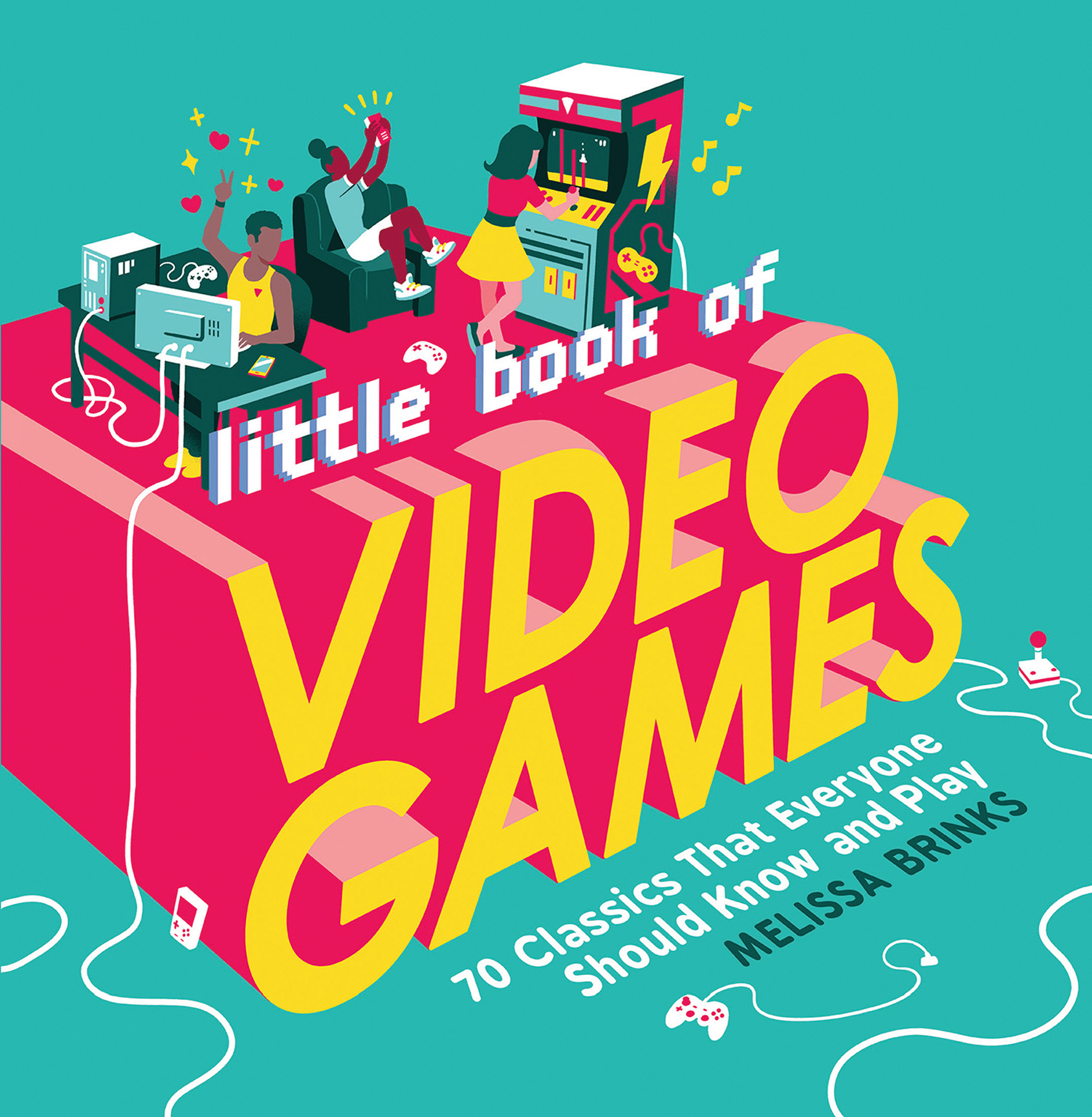
Copyright 2020 by Running Press
Cover illustrations and illustrations copyright 2020 by Paulina Ganucheau
Cover copyright 2020 by Hachette Book Group, Inc.
Hachette Book Group supports the right to free expression and the value of copyright. The purpose of copyright is to encourage writers and artists to produce the creative works that enrich our culture.
The scanning, uploading, and distribution of this book without permission is a theft of the authors intellectual property. If you would like permission to use material from the book (other than for review purposes), please contact permissions@hbgusa.com. Thank you for your support of the authors rights.
Running Press
Hachette Book Group
1290 Avenue of the Americas, New York, NY 10104
www.runningpress.com
@Running_Press
First Edition: May 2020
Published by Running Press, an imprint of Perseus Books, LLC, a subsidiary of Hachette Book Group, Inc. The Running Press name and logo is a trademark of the Hachette Book Group.
The Hachette Speakers Bureau provides a wide range of authors for speaking events. To find out more, go to www.hachettespeakersbureau.com or call (866) 376-6591.
The publisher is not responsible for websites (or their content) that are not owned by the publisher.
Icons and spot illustrations copyright 2020 by Getty Images: Nusha777, MonsterDesignX, LueratSatichob, pressureUA, and greyj
Library of Congress Control Number: 2019951194
ISBNs: 978-0-7624-9657-0 (hardcover), 978-0-7624-9656-3 (ebook)
E3-20200401-JV-NF-ORI
HOW A GLITCH TAUGHT ME TO LOVE VIDEO GAMES
I dont remember the first video game I played. It might have been Super Mario Bros. or Duck Hunt or Dr. Mario, or one of any number of arcade games available at the local pizza place. I sank many hours into each of them, but I distinctly remember the moment I fell in love with the medium.
It was an old, kind of crummy, off-road racing game for the PlayStation. I played it religiously at a friends house, even though I was terrible at it. But one day, something magical happened: I veered off the track and into the fence that kept players within the level boundary. Instead of correcting myself, I kept going and rammed into a corner of that fence, but for once, it didnt stop meI kept going, driving out over the endless horizon in an infinite loop.
Im sure I had run into bugs before then, but this glitch, which let me break the rules for fun, was something new. I suddenly became aware that games werent perfect, and that made them infinitely more interesting. How did bugs make it in? What kind of people worked on video games? How did the games get made?
From that moment on, my curiosity was insatiable. Unable to afford new game consoles, I read gaming magazines, absorbing the stories behind the games almost as often as I devoured the stories of the games themselves. Video game history is fascinating, a mixture of technological achievement and deeply human tales of passion, curiosity, and betrayal, often as exciting as the sword-slinging adventures of Link or the terrifying journey of Harry Mason.
Its easy to forget that the games that shaped the current industry havent always existed, that they, too, could be buggy gateways to learning more about a favorite pastime. In this book, Ive collected anecdotes about some of the most impactful games in historynot necessarily the most popular, or the best-selling, or my personal favorites, but rather the games that influenced todays hits, forever leaving marks on an enormously significant industry.
Whether youre a seasoned gaming historian or youre just picking up your first controller, I hope these stories will excite you in the same way that the glitch in some racing game whose name I dont even remember did for me.
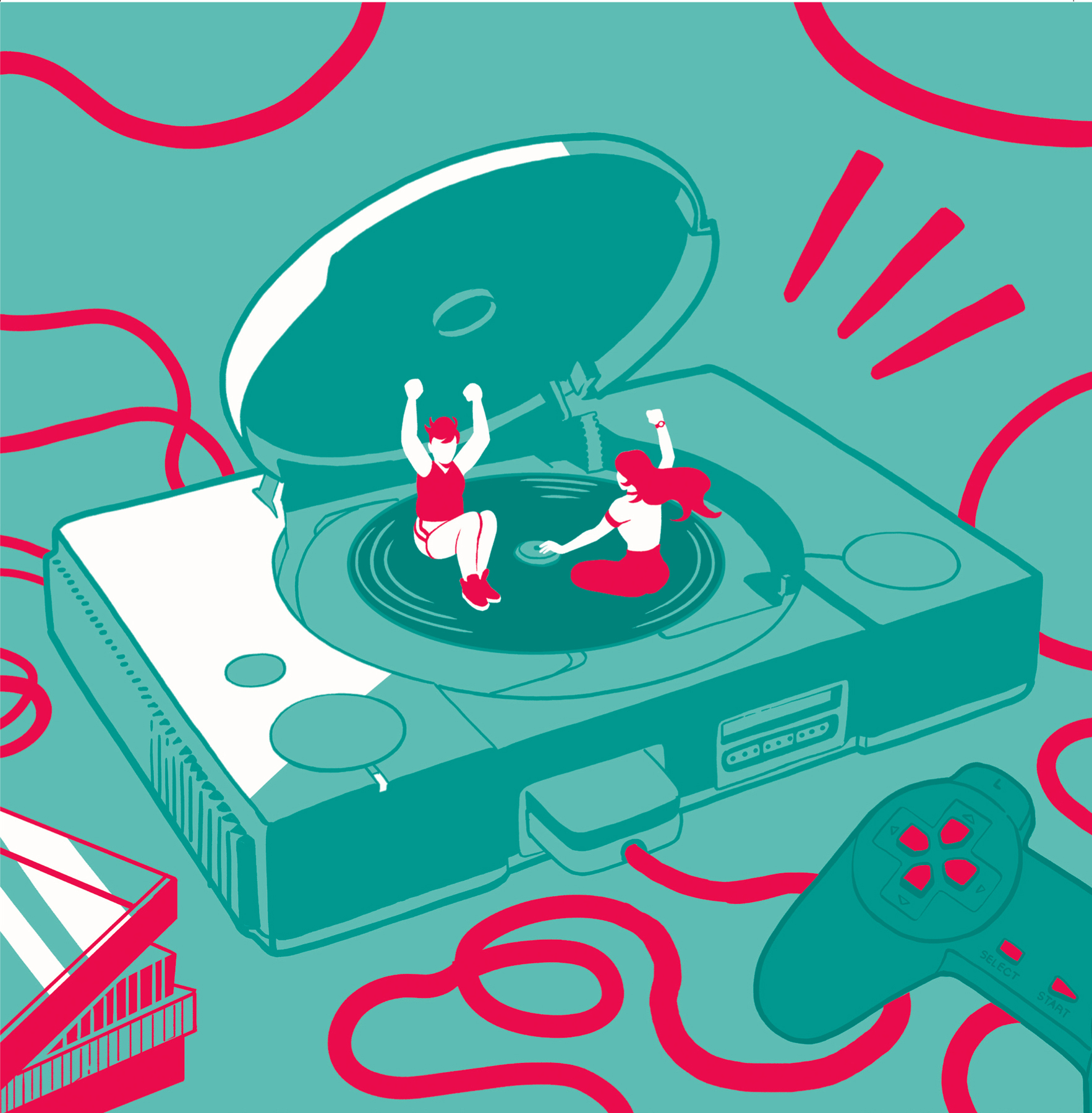

Pinpointing the very first video game is difficultnumerous tic-tac-toe and chess emulators existed prior to Tennis for Twos creation in 1958, but William Higanbothams invention is often regarded as the first video game by modern standards.
Higanbotham started his career in radar technology before working at the Los Alamos National Laboratory as part of the Manhattan Project. His team developed ignition and measuring instruments for the first nuclear bomb, but Higanbotham later left the project and dedicated his life to nuclear nonproliferation as a founder of the Federation of American Scientists in 1945. He joined Brookhaven National Laboratorys instrumentation division two years later, where he developed Tennis for Two, a tennis simulator, to showcase at one of the labs annual exhibitions.
Higanbotham hoped that it might liven up the place to have a game which would convey the message that our scientific endeavors have relevance for society. He, along with other members of the instrumentation division, created the game in just three weeks, using existing circuits and instructions. They chose not to patent it because Higanbotham didnt think the game was sufficiently innovative. And having been developed with Brookhavens technology, it would have belonged to the US government rather than to him.
Despite creating one of the earliest known video games, Higanbotham preferred to be known for his work in nuclear nonproliferation.
Tennis for Two was largely forgotten until the 1980s, when David H. Ahl, founder of Creative Computing magazine, recalled playing the game as a teen. In a cover story for the magazine, he called Higanbotham the grandfather of video games. Around six months later, an interview by Frank Lovece that ran in Video Review renewed interest in Higanbothams contributions to the field.

Spacewar! is another contender for the title of first video game. Though it was never commercially available, the game introduced many conceptsunique weapons, a virtual world, physicsthat later became synonymous with the medium. Developed by Steve Slug Russell, a member of the Tech Model Railroad Club, which many early hackers participated in, Spacewar! was one of the first games created for entertainment. Two players control spaceships in orbit around a star with a gravitational pull. Both ships have weapons, and the ultimate goal is to destroy your opponents ship first.
Russell developed the game with the intent of impressing his friends, and that it did. Because the computer he used to create the game was enormous (roughly the size of three refrigerators) and prohibitively expensive, Russell and others deemed it unnecessary to copyright protect the game. It was also developed under hacker ethic, a philosophy of early computer programming that held that computers and the knowledge possibilities they contained should be free to operate and access. Spacewar!, as part of that new technology, was available to be played, taken apart, remixed, and studied by others.
As the game grew in popularity, hackers added new modes, such as a realistic starfield, and tweaked Russells weapon deployment (which included frustrating random explosions) to be more predictable. Others invented variations on the game, spreading its popularity among computer enthusiasts for free. The game was even used to test whether PDP-1 units were functional: programmers would turn on the machines and activate the game to verify that the computers were in working order.
Font size:
Interval:
Bookmark:
Similar books «Little Book of Video Games: 70 Classics That Everyone Should Know and Play»
Look at similar books to Little Book of Video Games: 70 Classics That Everyone Should Know and Play. We have selected literature similar in name and meaning in the hope of providing readers with more options to find new, interesting, not yet read works.
Discussion, reviews of the book Little Book of Video Games: 70 Classics That Everyone Should Know and Play and just readers' own opinions. Leave your comments, write what you think about the work, its meaning or the main characters. Specify what exactly you liked and what you didn't like, and why you think so.

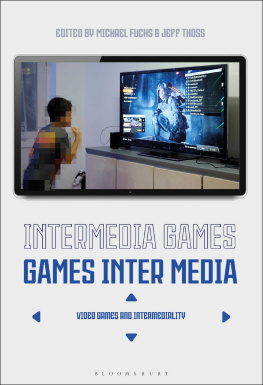
![Mark J. P. Wolf (editor) - Encyclopedia of Video Games: The Culture, Technology, and Art of Gaming [3 volumes]](/uploads/posts/book/279290/thumbs/mark-j-p-wolf-editor-encyclopedia-of-video.jpg)
